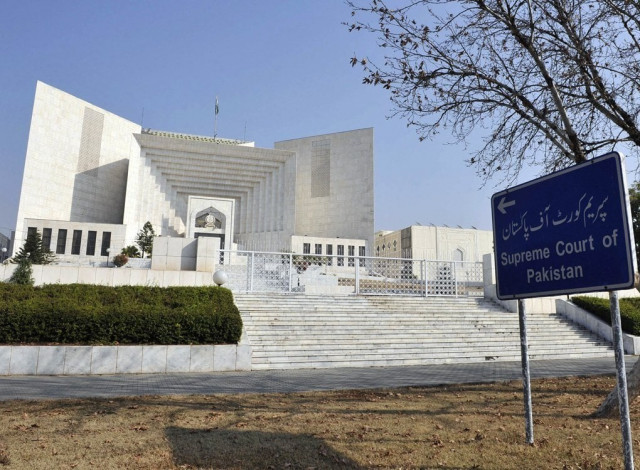Political parties may form alliances for Senate elections, observes SC
The top court says forming such alliances doesn't affect the proportionate representation

The Supreme Court on Friday observed that forming political alliances does not affect proportionate representation in the Senate and political parties may do so at their will. .
The remarks were made by Justice Ijazul Ahsan as part of a five-judge larger bench which today resumed hearing of a presidential reference seeking the court’s opinion on introducing open ballot in the upcoming Senate elections.
Pakistan People's Party's (PPP) senior leader Raza Rabbani said that the purpose of the Senate is to give equivalent representation to all political parties.
He added that the two Houses of the parliament do not run in agreement in a parliamentary system. "It isn't necessary for a party forming its government in the federation may also have a majority in the province too," he explained.
Also read: Political parties must have proportionate representation in Senate: SC
Rabbani further said that an alliance of the opposition parties can also change the proportion of seats in the Senate. He added that he would submit a detailed response on proportionate representation.
At this, Justice Ahsan said that the term proportionate representation is mentioned in both Articles 51 and 59 of the Constitution. A political alliance also cannot affect proportionate representation.
The judge maintained, "Any party that wants to form an alliance may do so freely".
However, the veteran PPP leader said, "the way the court is explaining proportionate representation is as per ideal circumstances," and added, "political affairs are never ideal".
He pointed out that Pakistan Tehreek-e-Insaf (PTI) and Pakistan Muslim League-Q (PML-Q) have their alliance in Punjab, while the PTI has given the PML-Q a seat in the Senate.
Justice Ahsan reiterated that the representation of a political party should be as per their proportion in the province.
Also read: SC dismayed at ECP failure to curb Senate horse trading
Justice Umar Ata Bandial said that political parties also make adjustments with parties of other provinces. "Even if there is an inter-provincial alliance, why is it necessary to keep it secret," he asked.
Rabbani responded, saying, "there's a difference between 'horse-trading' and a political alliance." He added that a political alliance is usually a secret alliance.
"However, if an individual wants to become a member of the Senate, then horse-trading may take place."
The court subsequently adjourned the hearing of the case until Monday.
Earlier, the counsel for the Election Commission (ECP) informed the court that they have submitted the code of conduct for the voters [with the relevant authority].



















COMMENTS
Comments are moderated and generally will be posted if they are on-topic and not abusive.
For more information, please see our Comments FAQ